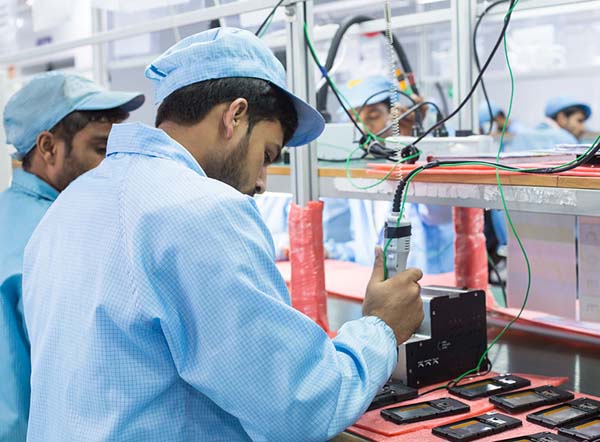
By Anand Parthasarathy
With India’s interim budget scheduled to be presented on February 1, the lobbying and the wish lists are in full swing, not least for the technology driven industries.
The India Cellular and Electronics Association (ICEA) suggests that import duty cuts on mobile phone components can increase domestic production of handsets, boost exports, and help indigenous manufacturing.
The Global Trade Research Initiative (GTRI) comes to the opposite conclusion saying the current tariffs which are between 7.5% and 10% should be continued. As any reduction will adversely affect local manufacturing.
The India Electronics and Semiconductor Association (IESA) has exhorted government not to impose customs duties on the electronic transmission of design data between India and the rest of the world.
Like the Roman God Janus, Agni the puranic fire God is often depicted with two faces. And at least some of this confusion can fairly be attributed to the Indian government’s seemingly dual-faced approach to trade policies .
They simultaneously seem to say swagatam, welcome, to foreign investment in Indian manufacturing by offering carrots like Production Linked Incentives (PLI), while raising a stick or danda with protectionist import tariffs and heavy handed justice for alleged defaulters.
In August last year, the government, out of the blue, announced import restrictions and a licensing requirement for laptops, tablets and certain class of computers. Howls of protest that this was a throwback to the notorious ‘Permit-Licence Raj” prevalent in the 1960s and 70s, saw some obfuscation about what government really meant, successive postponements and rephrasing of the announcement which was watered down from a licensing requirement to an “online authorisation” till September 2024. After that date, what?
WTO obligations
There were vague suggestions that national security considerations were behind the move to control who imported what computer hardware and seek more data from importers. Many exporting nations are uncomfortable with this and point to India’s commitments under World Trade Organization (WTO) rules which require signatories to do away with most such trade barriers. But by now India has become rather adept at signing up on such global agreements, then looking assiduously for grounds to seek exemptions.
This often happens because different ministries sometimes work at cross purposes. The Finance Ministry’s zeal in seeking to tax exchange of data between global tech players like Intel, Qualcomm, TI,NXP and others and their India-based design centres, defeats the official encouragement of such Global Capability Centres (GCCs) which number about 1600 in India.
Dealing with white collar crime
White collar crimes are a global phenomenon and need to be dealt with. But turning a case into a international cause celebre is counter productive and only send an appalling message.
An ongoing case of alleged money laundering by a Chinese phone maker, Vivo has seen the arrest among others, of the Managing Director of a well known Indian mobile phone maker, Lava whose commercial connection with the Chinese company, appears to be tenuous.
The Information Technology Minister of State, Rajeev Chandrasekhar has been quoted in Business Standard as being ‘very concerned’ adding “As a brand we hold Lava to be a very important participant… I do not know all the facts… I hope... the right thing is done by Lava.”
Whatever be the true facts of the case, Indian and foreign nationals in the tech industry spending weeks and months in jail without bail for alleged financial crimes makes for bad optics.
It underlines how both policy and trade environment need to be welcoming even if law abiding; consistent with international practice and in adherence to all global policies, a country signs up for.
‘Carrot and stick’ is a neat phrase. It’s not a good model in the real world of global business.
This has appeared in NewIndiaAbroad